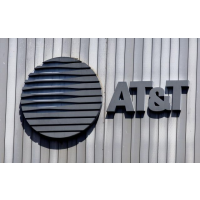California Gets a Piece of AT&T Wireless-Cramming Settlement

After years of sticking charges on people’s wireless devices for services they never asked for and refusing to remove them, AT&T reached a settlement with 50 state attorneys general and the federal government not to do that anymore. Oh, and they coughed up $105 million, 0.32% of AT&T’s 2nd-quarter earnings of $32.6 billion.
California will get $927,536. “This settlement holds AT&T accountable for its misleading practices and refunds consumers for unfair billing,” state Attorney General Kamala Harris said. Probably not entirely “accountable.”
A U.S. Senate report in July called the practice known as “cramming” a “billion-dollar industry that has yielded tremendous profits for carriers. . . . AT&T, Sprint, T-Mobile, and Verizon generally retained 30 percent to 40 percent” of each charge placed on bills by third parties.
The companies were warned as far back as 2008 that they should cut it out, according to the Senate report, “yet carriers' anti-cramming policies and sometimes lax oversight left wide gaps in consumer protection.” Federal Trade Commission (FTC) Chairwoman Edith Ramirez told the Los Angeles Times that AT&T responded to customer complaints in 2011 by reassuring third-party services they wouldn’t have to give full refunds and then limited refunds to two-months worth.
That’s just about the time the Senate put out a report on landline cramming, which it called a multibillion-dollar scam that had been going on for decades, and began the report on wireless it presented three years later. The report found a lot of cramming.
Most of the complaints about cramming were a result of third-party text messaging companies putting charges on users’ phones for so-called premium short message services (PSMS), like horoscopes, ringtones, trivia and sports scores, which are conveyed via texts. The unauthorized fees range from $1.99 to $19.99 a month.
Charges are buried on bills in the blizzard of numbers and tiny type that are regularly ignored by consumers. AT&T also disguised some of the third-party charges as “legitimate” by listing them as “AT&T Monthly Subscription.”
The four telecoms agreed to stop letting that happen last year. But other forms of cramming and scamming continue. According to the Senate report, “While the major carriers have phased out commercial PSMS services, they continue to allow third-party charges on consumers’ wireless bills using methods that do not involve PSMS.”
The settlement requires the companies to receive “express, informed consent” from customers before putting third-party charges on the bill. Presumably, that consent solicitation will not be disguised as something else or worded with misleading double-and triple-negatives.
The Attorneys General took $20 million of the settlement for their trouble and the Federal Communications Commission (FCC), a party to the settlement, received $5 million.
$80 million of the national settlement will pay for reimbursements to customers who were ripped off. That may not be much money per person, considering that 1.3 million customers complained to AT&T about cramming in 2011 alone. Alleged victims since January 1, 2009, can submit claims under the AT&T Mobility cramming refund program by visiting www.ftc.gov/att.
As usual, no company executives were named as responsible, much less accused of a crime.
–Ken Broder
To Learn More:
Breaking: AT&T to Pay Government $105 Million for Cramming (by Karl Bode, DSL Reports)
AT&T to Refund $80 Million in Settlement of Mobile Cramming Case (by Jim Puzzanghera, Los Angeles Times)
Senate Blasts Mobile Carriers for Profiting from Phony Fees (by Dara Kerr, CNET)
Attorney General Kamala D. Harris Announces Cramming Settlement with AT&T Mobility (California Attorney General’s Office)
FTC Charges T-Mobile with Forcing Bogus Charges on Customers (by Noel Brinkerhoff, AllGov)
Cramming on Mobile Phone Bills: A Report on Wireless Billing Practices (Senate Committee on Commerce, Science and Transportation)
- Top Stories
- Controversies
- Where is the Money Going?
- California and the Nation
- Appointments and Resignations
- Unusual News
- Latest News
- California Forbids U.S. Immigration Agents from Pretending to be Police
- California Lawmakers Urged to Strip “Self-Dealing” Tax Board of Its Duties
- Big Oil’s Grip on California
- Santa Cruz Police See Homeland Security Betrayal in Use of Gang Roundup as Cover for Immigration Raid
- Oil Companies Face Deadline to Stop Polluting California Groundwater





